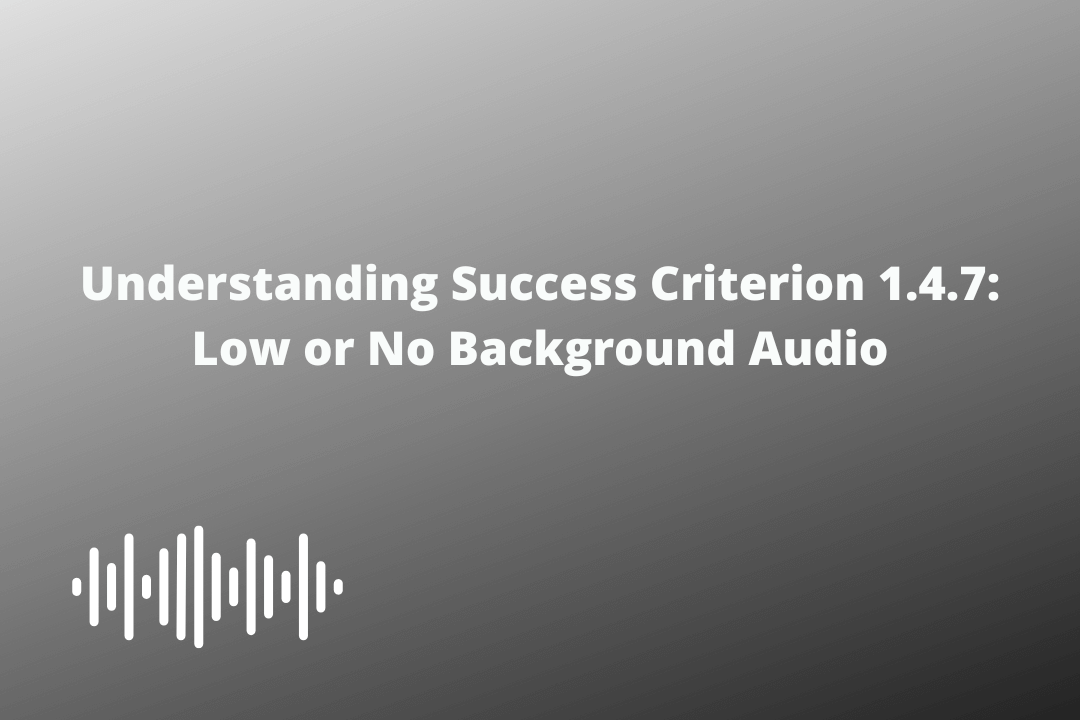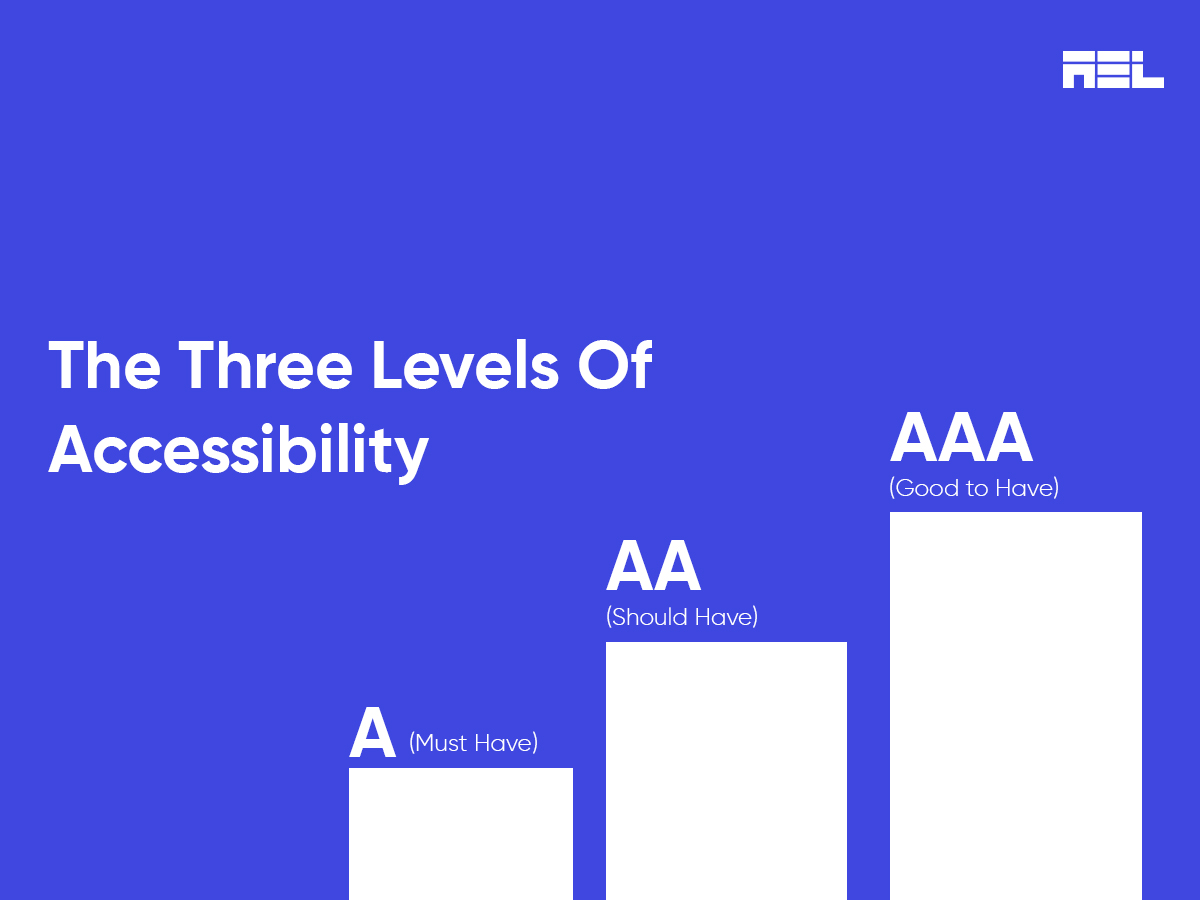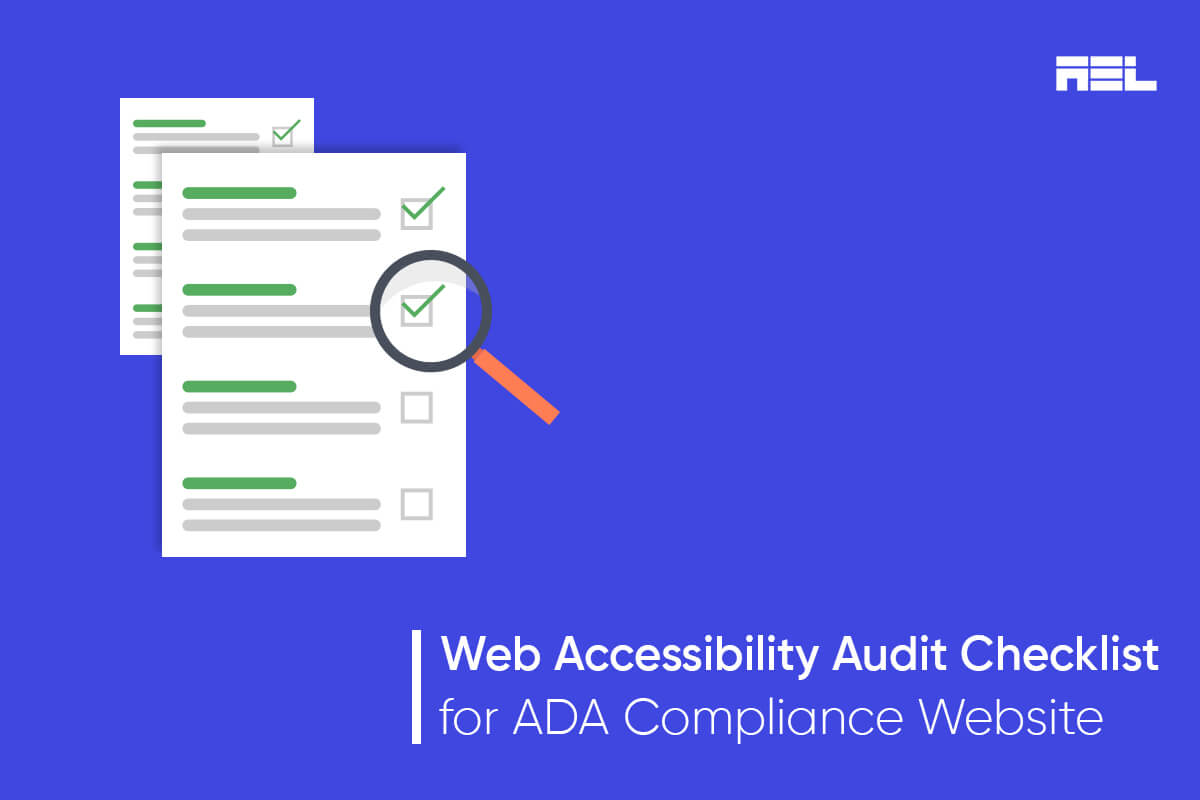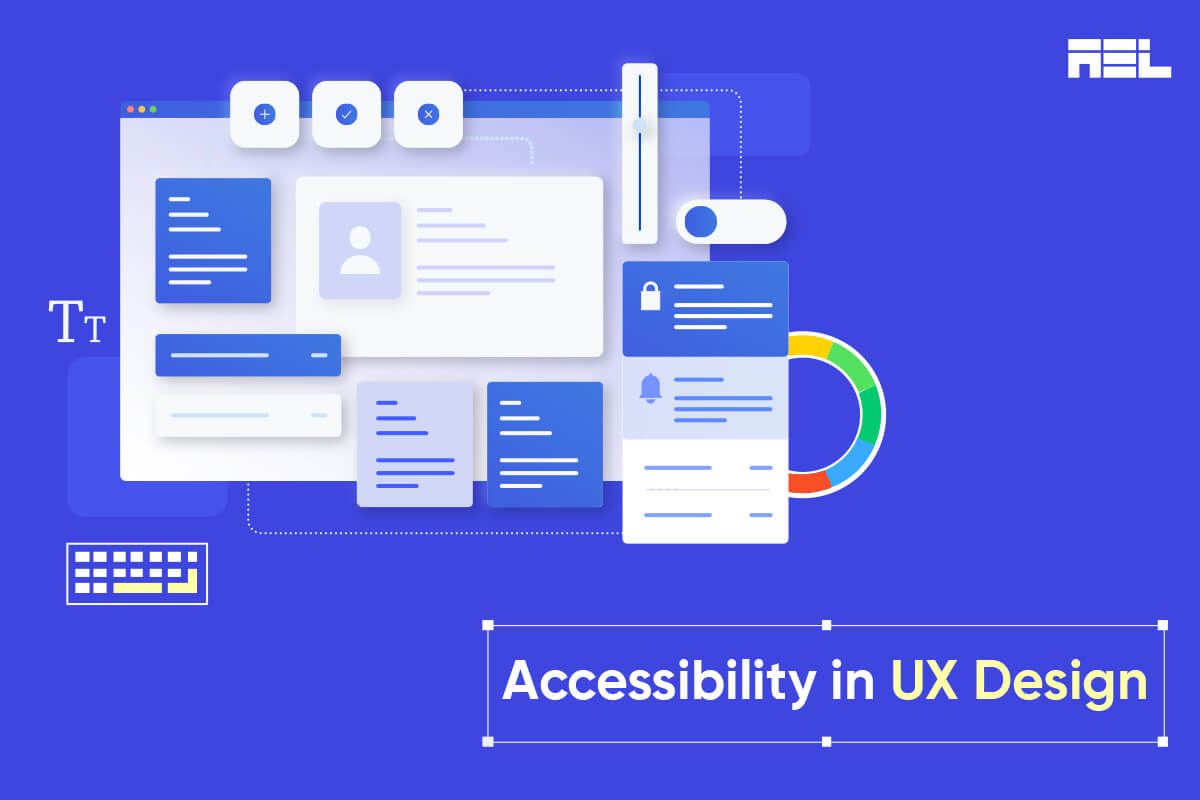Ensure that in all pre-recorded audio-only content non-speech content sounds are lower, can be turned off, or has no background noise. This helps users who are hard of hearing can clearly differentiate between speech from background sounds or other noise foreground speech content.
Table of Contents
Official Requirements
Success Criterion 1.4.7 Low or No Background Audio (Level AAA) : For prerecorded audio-only content that (1) contains primarily speech in the foreground, (2) is not an audio CAPTCHA or audio logo, and (3) is not vocalization intended to be primarily musical expression such as singing or rapping, at least one of the following is true:
No Background
The audio does not contain background sounds.
Turn Off
The background sounds can be turned off.
20 dB
The background sounds are at least 20 decibels lower than the foreground speech content, with the exception of occasional sounds that last for only one or two seconds.
Per the definition of “decibel,” background sound that meets this requirement will be approximately four times quieter than the foreground speech content.
Why is it required?
People who are hard of hearing find it difficult to separate speech sounds from non-speech content. Therefore, having lower or no background noise will help users to clearly understand audio-only content.
How do we fix it?
- Avoid having background noise in your pre-recorded audio content
- If the background noise is unavoidable, ensure that it is 20 dB lower than the foreground noise
Are there any exceptions?
This success criterion has a few exceptions, the background noise is exempted when
- The audio does not contain primarily speech in the foreground (for example: The audio contains an action scene where a plane is blown up)
- The audio is of CAPTCHA ( A CAPTCHA is a type of security measure that protects from bots or other automated attacks by approving only valid users.)



